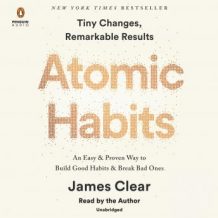Our Cosmic Ancestry in the Stars: The Panspermia Revolution and the Origins of Humanity Audiobook
Our Cosmic Ancestry in the Stars: The Panspermia Revolution and the Origins of Humanity Audiobook
- Paul Harrington
- Inner Traditions Audio
- 2020-01-14
- 3 h 48 min
Summary:
An exploration of how acceptance of panspermia will shortly change history
• Presents extensive scientific proof panspermia–that lifestyle arose on Earth via comets which evolution is definitely seeded by infections arriving via comets and interstellar dirt
• Explores the major philosophical, psychological, cultural, spiritual, and environmental effects of the approval of this new scientific worldview
Mainstream consensus is that existence arose on Earth spontaneously away of “primordial soup.” Yet this about Our Cosmic Ancestry in the Stars: The Panspermia Revolution and the Origins of Humanity theory, as well as the Darwinian “success from the fittest” idea as it relates to main steps in progression, has no scientific basis or evidence. Where, then, did life come from? As the authors display, with conclusive technological evidence, life originated from space–a idea known as “panspermia.” We human beings, and all other life on Earth, progressed over millennia in response to infections that appeared via comets, and we continue steadily to do so.
Discovering the philosophical, psychological, cultural, and environmental ramifications of the acceptance of panspermia, the authors display how the change will become on par with the Copernican Revolution–when it was finally approved that the planet earth was not the center of the Universe. Explaining the origins of the panspermia theory in the task of the late Sir Fred Hoyle, the authors reveal the vast body of proof that has gathered over the past 4 decades in favor of the cosmic origins of lifestyle, including viral inserts within DNA which have formed our human being genome over an incredible number of years. They display the way the tiniest of infections, microscopic animals (tardigrades), as well as seeds have already been found to become organic cosmonauts. The writers also show how space-borne infections play an essential function in the positive development of existence and our whole existence upon this planet is contingent for the carrying on ingress of cosmic viruses.
Uncovering how panspermia provides answers for some of humanity’s longstanding queries about the origins of existence, the authors discuss the influence this shift in understanding will have on our relationship with the planet earth and on culture, background, and religion. And perhaps probably the most dramatic ramification of all is that acceptance of panspermia means acceptance that Earth is not unique–that additional life-filled planets can be found and intelligent life can be common in the World. Not only do we result from space, but we are not only.





